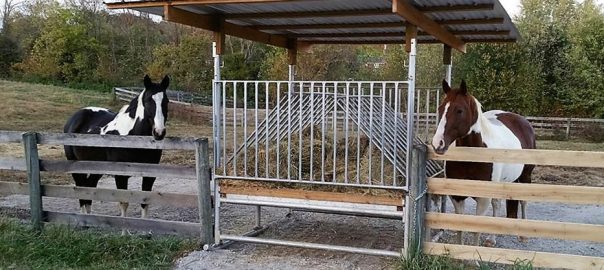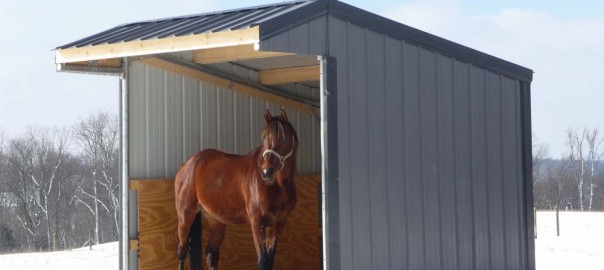It may be warm enough for the snow to have melted, but the springtime is still too damp and cold to jump right into summer practices. This makes spring one of the most tedious seasons to care for your horses, preparing them for the warm months of summer.
Luckily, we’ve put together a short to-do list so you can start preparing for the summer now.
- Schedule Check-Ups for your Horse
The spring is the perfect time to schedule your horse’s annual wellness exam. It’s especially important to get them vaccinated for mosquito season as mosquitoes and other insects oftentimes carry preventable diseases. - Check Your Fences
Once the snow and ice melts, you may notice that some things have shifted a bit during the cold weather – like fences for example. Freezing and thawing of the ground can cause fence posts to “heave,” resulting in downed rails, loose mesh or high tensile fences, which no longer have high tension. It’s important to make note of this now so you can tighten any fence posts that may have become loose over the winter. - Horse Hay and Grass Intake
When the first sprouts of grass begin to pop up, it’s common for horses to overindulge in the beginning. To prevent overindulgence, grazing muzzles can help to monitor grass intake. In addition, the use of a hay saver hay feeder can assist in preventing horses from overeating. It’s also important to keep a steady supply of forage for your horses as this is what will help to keep them warm through fermentation. The threat of laminitis due to over consumption is at an all-time high during the early spring. - Horse Hoof Care
Do not neglect regular trimming and resetting of shoes during the winter, even if your horses are not working. Letting horse hooves get overly long increases the chances of them chipping, cracking or other major changes in hoof angles. That’s why it’s important to keep up with hoof care during all seasons.
Summer is only right around the corner, so start gearing up for busy season while you can!

